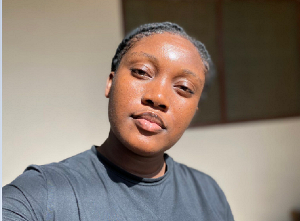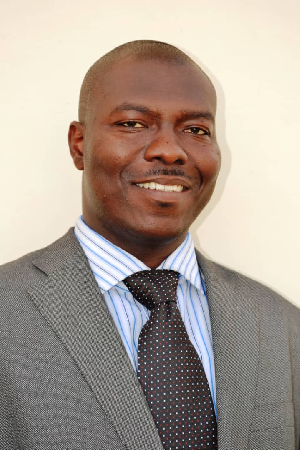- Home - News
- TWI News | TV
- Polls
- Year In Review
- News Archive
- Crime & Punishment
- Politics
- Regional
- Editorial
- Health
- Ghanaians Abroad
- Tabloid
- Africa
- Religion
- Election 2020
- Coronavirus
- News Videos | TV
- Photo Archives
- News Headlines
- Press Release
General News of Thursday, 13 September 2007
Source: Chronicle
Gov't Cautioned: Civil revolt as dangerous as coup
KWEKU BAAH Owusu, Western Regional Director of the National Commission for Civic Education (NCCE) says government officials must begin to think beyond military coups and consider civil revolt as one of the dangerous weapons that could mar the democratic process of Ghana.
He said if all conditions of democracy were not allowed to thrive, its sustenance in Ghana would be questionable. According to him, democracy effectively succeeded only when all other conditions involved in its process achieved their purpose.
Mr. Baah Owusu said this in his presentation at the closing session of a two day workshop organized by the Ghana Integrity Initiative (GII) and supported by the National Commission for Civic Education (NCCE) here in Takoradi.
He mentioned the lack of effective structures, low level of education, ineffective linkages between central government and local people with high incidence of poverty, among others, as the rudiments of democracy ignored by all governments and leaders of the country. These elements, he noted, if not checked properly by politicians could spell doom for the nation.
He added that he nation should not continue to glorify herself in her democratic progress.
He said politicians currently use money to buy the electorate which to him was very dangerous in a democratic process because the sovereign will of the people and the nation could not be sold to a few people. To this end he advised politicians and the electorate against the buying and selling of votes.
He told the over sixty participants at the workshop that the power that resided in the electorate to vote for leaders to steer the affairs of the country, was indeed one provided for by the Constitution.
This provision he explained indicated that the sovereignty of Ghana resided in the people and nothing according to him was worth more than that so for a few people in society to take advantage of the majority because of lack of knowledge and for their selfish gain, was unfortunate and dangerous.
Mr. Baah advocated for effective social auditing as a concept to help local people at the community level to demand their rights when questioning the performance of leaders who were elected by them as the duty bearers of their local communities.
Such a concept he revealed worked perfectly in Brazil and could provide the people with relevant information on government policies. A concept of that nature, he maintained, would also bring change to our democracy to generate good governance that would provide a platform for local people to determine their own goals, concerns, expectations and values.
He emphasized, “it is the people who should appreciate the changes, challenges and benefits of the system and not government officials saying it”.
He told the participants that if government should initiate a policy that would not be in the interest of the people then it was not a good policy, because it was the same people who would safeguard the policy and not government.
On the executive powers of government which had generated a heated debate recently in the media, after the former Speaker of Parliament, Rt. Hon Peter Ala Adjetey had advocated for the amendment of the 1992 Constitution to reduce the powers of the President, Mr Baah said though it would cost the nation because it would demand a referendum, the suggestion, he noted, could still be implemented if it was in the interest of the nation.










